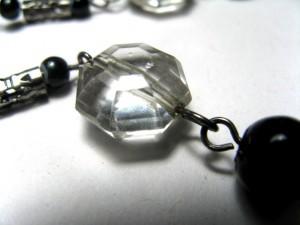 Question: I was paid to design jewelry for someone’s wedding and now I’m afraid the client thinks she owns the design. I’d like to figure out how to best protect so it won’t get stolen. Should I get a design patent or a copyright?
Question: I was paid to design jewelry for someone’s wedding and now I’m afraid the client thinks she owns the design. I’d like to figure out how to best protect so it won’t get stolen. Should I get a design patent or a copyright?
Answer: First, check any written agreements you may have with the client (and yes, electronic agreements count) to be sure you haven’t assigned your rights in the design. If you’re unsure, review this article and this one, too.
Copyright or design patent? The rights you get with a design patent are considered to be broader or more powerful than a copyright. That’s because you don’t need to prove that an infringer saw your work and copied it — all that matters is that the two works are the same. But that advantage may prove more valuable for those designers who can afford to obtain the design patent (as well as to enforce it). The design patent application and filing process can take a year or more and cost one to two thousand dollars. A copyright is automatic — it exists once you create the work — and registration, which provides benefits if you need to chase someone, typically takes three to six months and costs approximately $50 to $65. Copyright will last for your life plus 70 years; a design patent lasts for 14 years. In addition, there are many rules for design patents that could disqualify it as an option for you. For example, if your design has been offered for sale or images of it have been published more than a year ago (referred to as the one-year rule), you cannot now file for a design patent. (Note these rules will change on March 16, 2013, when the U.S. moves to a first to file system.) Finally, not all art can be protected under copyright and not all designs are protected under design patent law. Copyright law does not protect functional designs; and the USPTO will not issue design patents for ‘surface ornamentation’ (that is, two-dimensional illustrations such as drawings). So, if you’re only decorating the surface of an object, you may not qualify.
